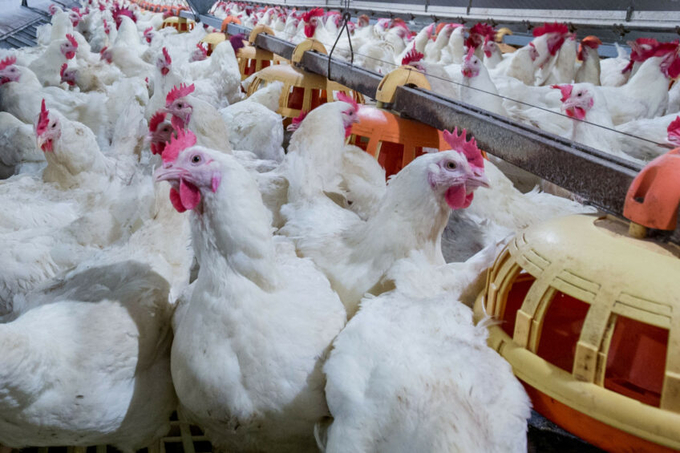May 22, 2025 | 03:37 GMT +7
May 22, 2025 | 03:37 GMT +7
Hotline: 0913.378.918
May 22, 2025 | 03:37 GMT +7
Hotline: 0913.378.918

For the poultry and egg sector, the USDA states that assumptions include no more outbreaks of animal disease, a continuation of existing US and global policies and trade agreements, normal weather and specific macroeconomic conditions. Photo: Canva.
Production of both chicken meat and eggs are expected “to grow steadily through 2033, after outbreaks of highly pathogenic avian influenza sharply reduced the US poultry and egg-laying flock in 2022 and 2023”.
The USDA’s annual 10-year projections, also known as the US agricultural baseline, provide a long-term outlook for major crop and livestock commodities and are based on specific assumptions.
“For the poultry and egg sector,” states the USDA, “assumptions include no more outbreaks of animal disease, a continuation of existing US and global policies and trade agreements, normal weather and specific macroeconomic conditions.”
Poultry remained the most-consumed animal protein in the US, with chicken and turkey accounting for 46% of all red meat and poultry consumption by volume in 2023. “In addition, the US is the world’s second-largest exporter of chicken behind Brazil. In 2023, nearly 16% of US broiler production was exported.”
Due to avian influenza, US egg production fell from 9.4 billion dozen in 2019 to a 5-year low of 9.1 billion dozen in 2022. Looking forward, “consistent with the baseline presumption of no further avian influenza outbreaks, US egg production was projected to recover in 2024 and continue to expand to a record 10.8 billion dozen by 2033” as the population and per capita consumption grow.
Whilst ‘cultivated’ chicken, beef and other types of meat have been sold legally in the US since June 2023, in July 2024, the governor of Florida banned it in the state because this form of protein “is designed to be a threat to agriculture as we know it”.
The ban, however, is being challenged by the Institute for Justice, a non-profit law firm, and Upside Foods, one of the country’s leading cultivated meat companies. Together they are challenging the ban on the basis that it is unconstitutional and undermines the principles of a national common market.
Poultry genetics firm Cobb-Vantress has revealed the recipients of its 2024 research grants, the second year of the programme. The projects include:
Scientists at the University of California-Riverside have found lice counts are much higher in cage-free layer hen housing systems compared to caged flocks.
To help detect mite infestations in chickens, entomologist and lead study author Dr Amy Murillo previously led a team of entomologists, computer scientists and poultry scientists in creating a new insect detection sensor.
(PW)

(VAN) Attempts to bring down the price of the Japanese staple have had little effect amid a cost-of-living crisis.

(VAN) Fourth most important food crop in peril as Latin America and Caribbean suffer from slow-onset climate disaster.

(VAN) Shifting market dynamics and the noise around new legislation has propelled Trouw Nutrition’s research around early life nutrition in poultry. Today, it continues to be a key area of research.

(VAN) India is concerned about its food security and the livelihoods of its farmers if more US food imports are allowed.

(VAN) FAO's Director-General emphasises the need to work together to transform agrifood systems.

(VAN) Europe is facing its worst outbreak of foot-and-mouth since the start of the century.

(VAN) The central authorities, in early April, released a 10-year plan for rural vitalization.